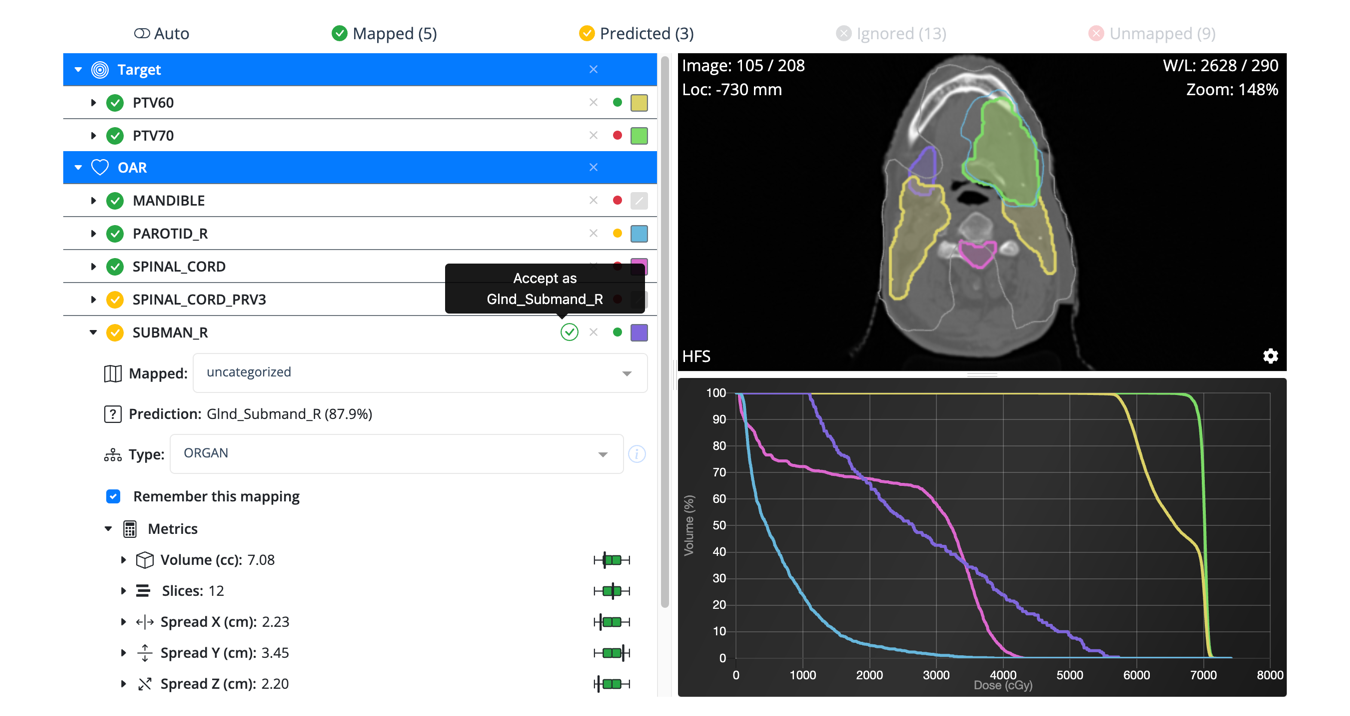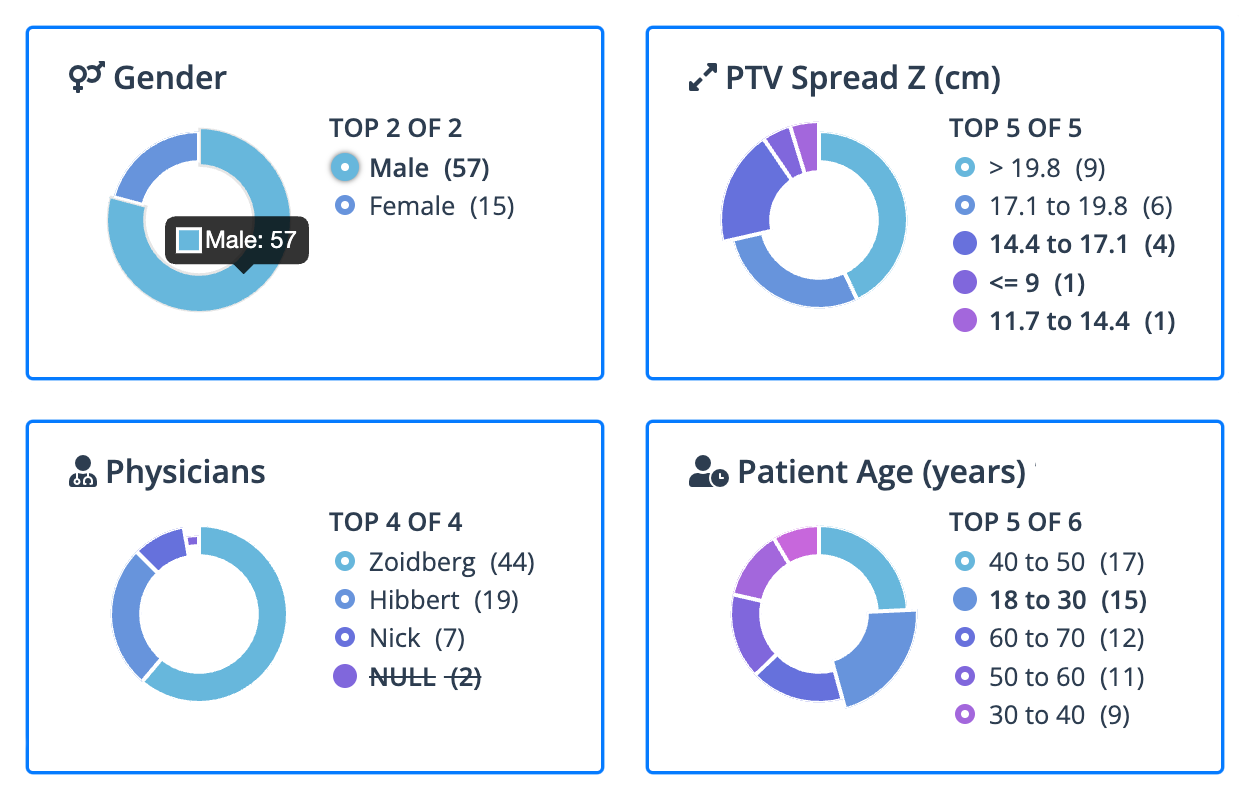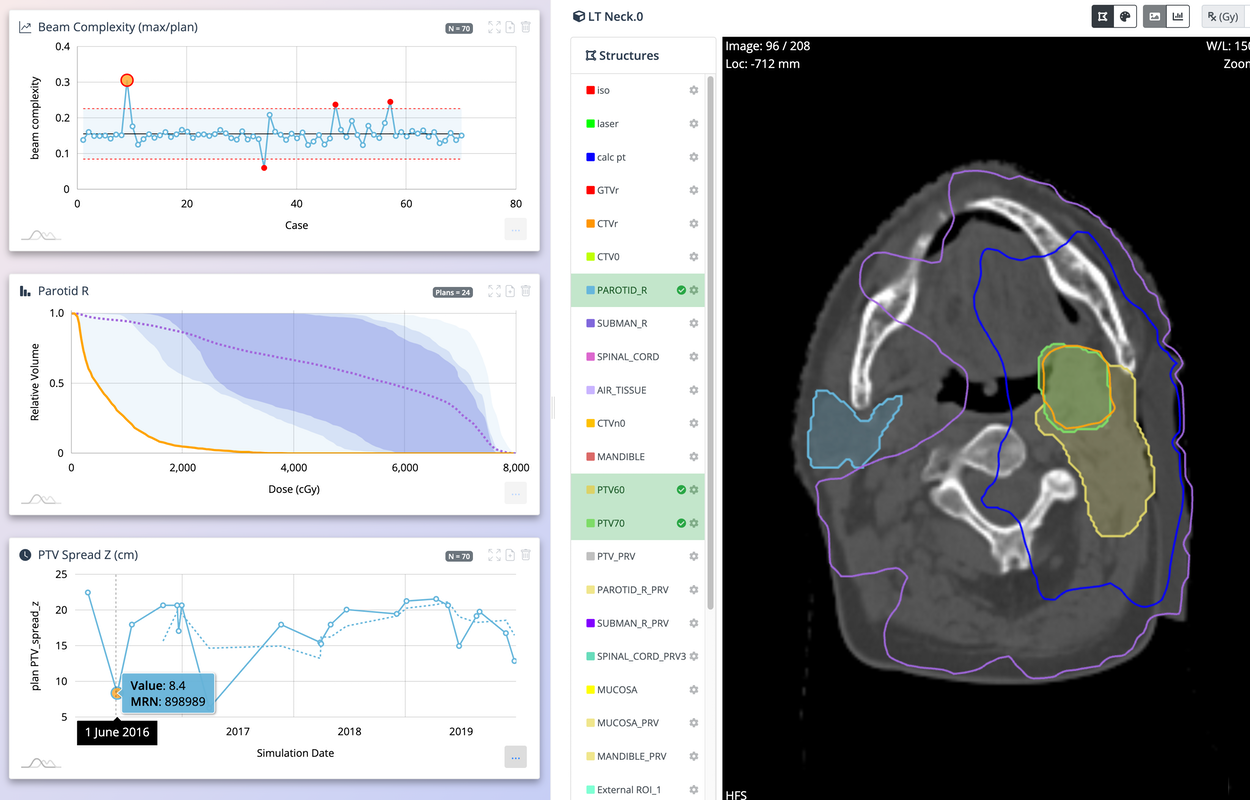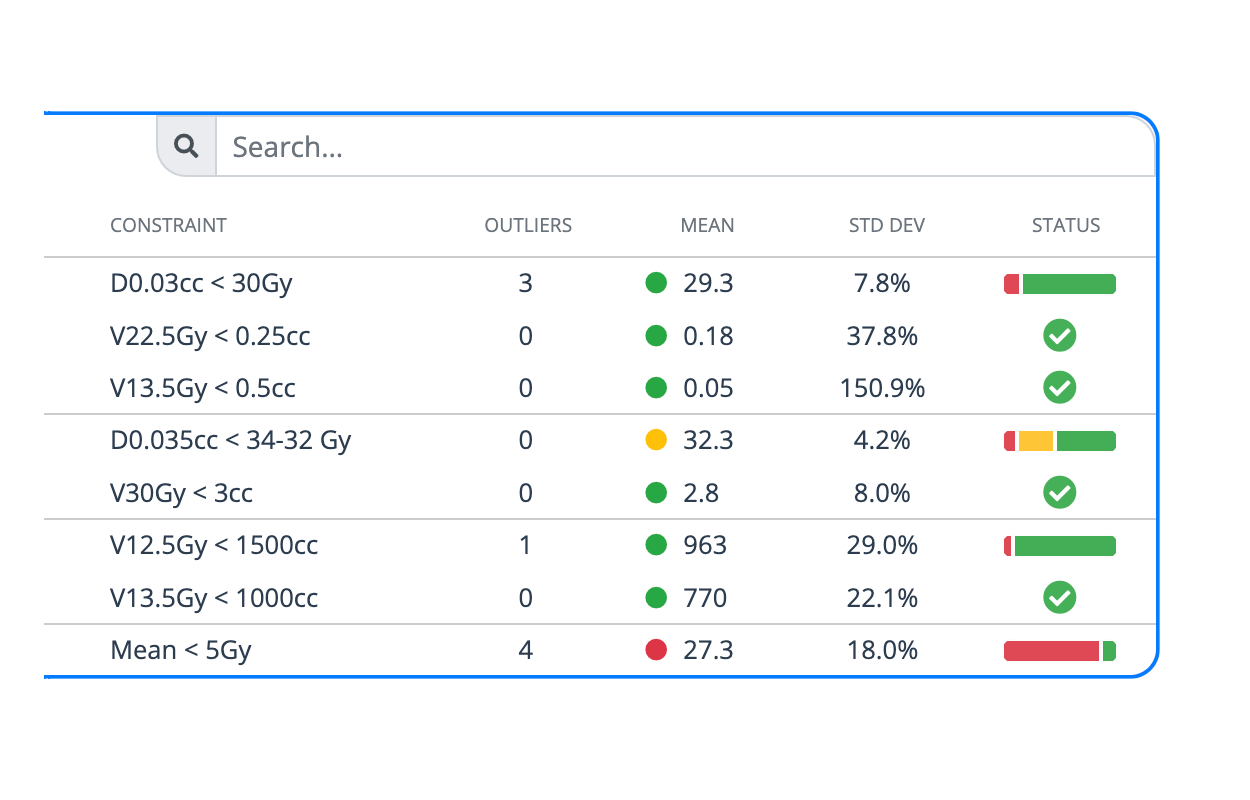Making BIG DATA practical for radiation oncology

Brought to you by the developers of dicompyler and DVH Analytics.
Features
What you get with Radial
We've combined the latest big data technologies tailored for radiation oncology's complex data.
Blazing fast data access
Tap into an enterprise class database built for both speed and flexibility.
Intuitive querying
Graphically and interactively filter your data with ease.
Structure name prediction
Automatically categorize structures with a database that learns over time.
Trending of any endpoint
Look up any dosimetric point across your patient selection on-the-fly.
Modern web framework
Use any modern web browser. Optionally host data in the cloud or deploy locally.
Vendor independence
Import and curate data from a variety of patient data sources.
Autosegmentation New
Generate structures from CT images using GPU-accelerated autosegmentation.
Radiomics New
Calculate and query various radiomic features based on CT and DICOM-RT Structures.
Structure Boolean Operations New
Subtract, add, or intersect structures to visualize and evaluate within the Radial platform.
Advanced Querying New
Create complex queries using a graphical and tabular interface, including statistical functions of array data.
Data Exploration
See the forest and the trees
Radial provides a high-level overview of your data but also provides context with individual patients.
Interactive dashboard
Get a quick overview of your database, or click on the charts to visually design queries.
See your database grow
The dashboard can be configured to show the metrics that are important to you and display a list of patients that match your filters.
Connect the quantitative and the qualitative
Automatically pull up patient images, structures, and dose — simply click on a data point.
View a patient case with larger context
Charts in Radial are linked to help identify bias. Selecting a data point will highlight the selected patient in all charts.
Monitor a protocol or generate final stats
The Protocols module lets you apply traditional treatment planning scorecards to many patients at once. Evaluations of demographics, prescriptions, imaging, plan, geometry, and dose are all supported.
Query full resolution DVHs
Just finished collecting your data for a report and then realize you need to add a new endpoint? No problem, Radial is built to look up any DVH point across your patient selection on-the-fly.
Modules
Keep your data organized and accessible for easy analysis
Radial includes a suite of tools to help you manage and evaluate your data.
Get an overview of your data or interactively drill down into the details.
View, inspect, and manage the map of RT-Structure names based on AAPM TG-263.
Ensure missing data doesn't impact your analysis using Radial's Curation workflows.
Generate charts and plots tied to patient images, structures, and dose.
Quickly and easily determine dosimetric values across all of your data or filtered data using presets.
Evaluate one or many patients against a protocol (e.g., RTOG) or in-house clinical scorecard.
FAQ
Frequently Asked Questions
Dive into the following questions to gain insights into what Radial offers and how it can improve your data collection and analysis in radiation oncology.
Why Radial?
Record and Verify and Treatment Planning Systems are used for individual patients, but they're not designed for big data. Radial is a database built for fast querying across many patients.
If Radial is web-based, does that mean I have to upload my data to the cloud?
No. Radial can be deployed locally on your own computer or server. Radial can also be deployed in the cloud.
Do I need to know any scripting?
Not at all. Radial's query builder allows you to filter data using a graphical interface. However, we plan to offer a user facing API in the future for our users that prefer a coding interface.
Can I export data from Radial?
Radial supports the export of data to CSV or JSON as well as various imaging formats in the Charts module.
Are there any limits on the number of patients or data size?
If Radial is deployed locally, the size of your database is only limited to the disk space you provide. For cloud deployment, we offer tiered pricing based on the number of patients.





